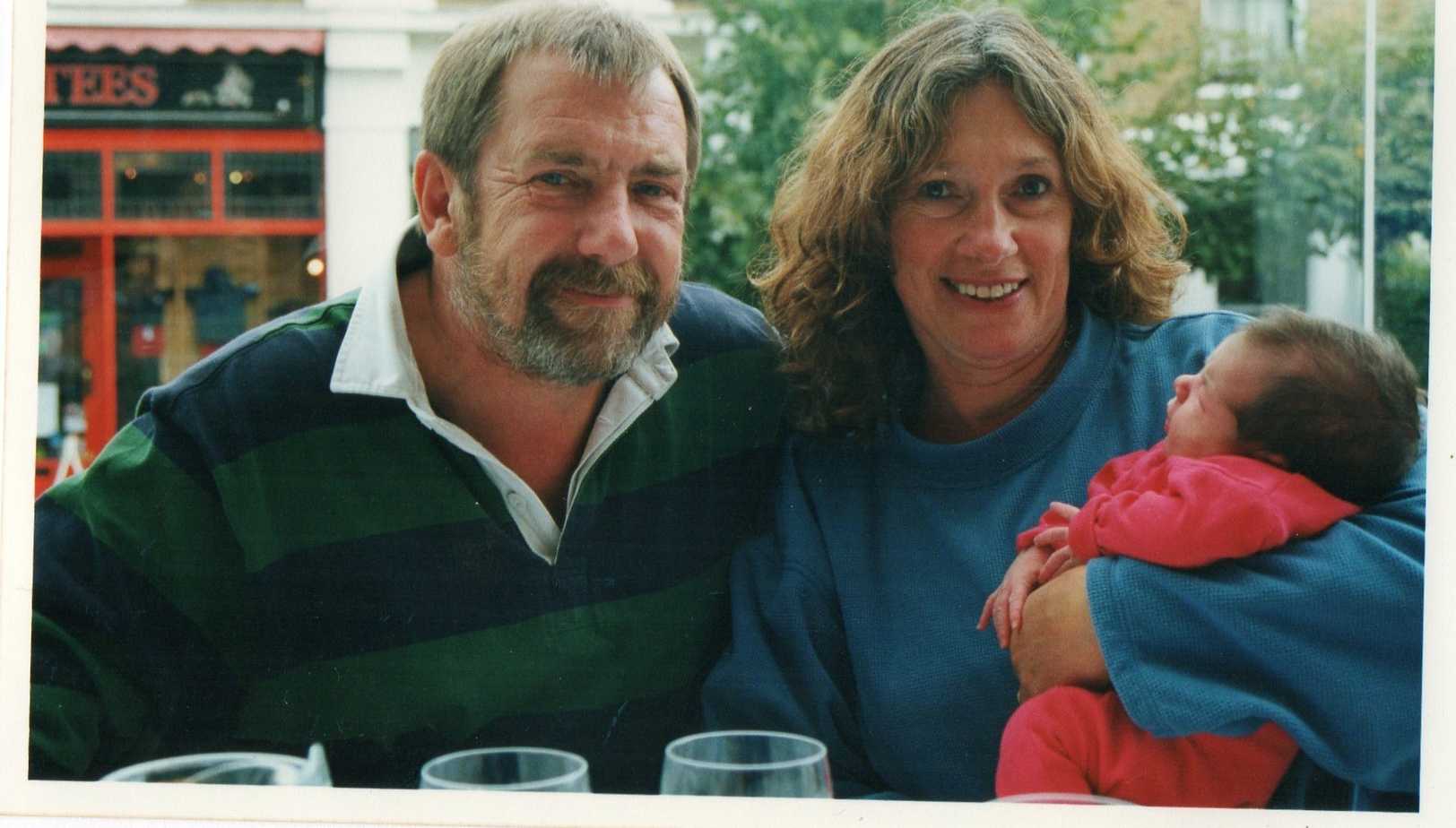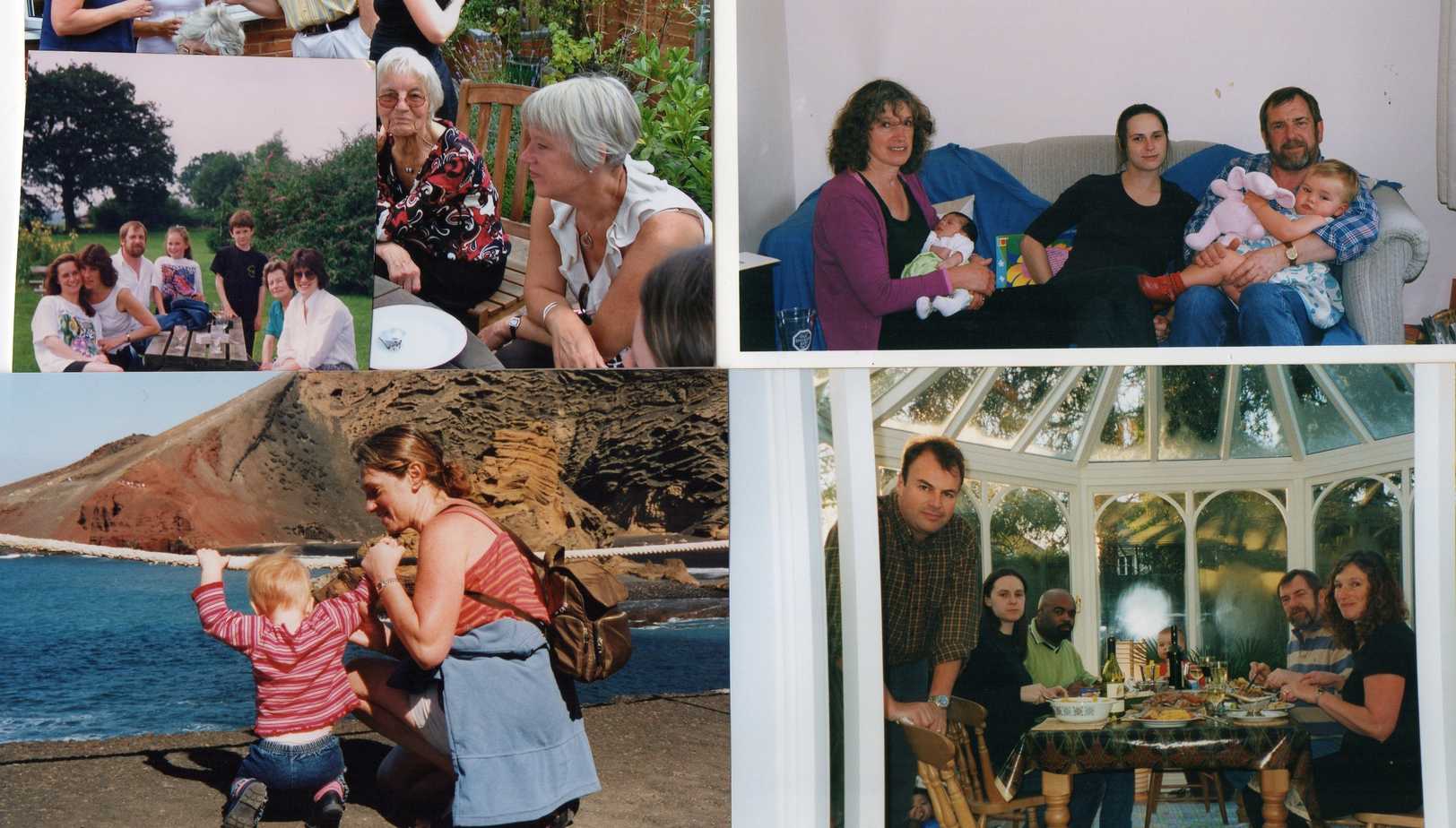Margaret Baldwin's Story
- Posted: 18 November 2025
- 4 min read
She had worked as a nurse, she knew what illness looked like, but none of us knew the signs of this one. If even one person spots it earlier because of Grandma’s story, it’ll mean something.
Becky Taylor, Margaret's granddaughter
Margaret Baldwin - a life of care, cut short by pancreatic cancer
Margaret Baldwin was just 64 when she died from pancreatic cancer in March 2011. Margaret trained as a nurse in London and when she and her husband Mike secured a job as a teacher in a local primary school they returned to Herefordshire to raise their young children.
She worked night shifts caring for young children and then adults with learning disabilities in a residential care home. Full of energy and always on the go, Margaret was a person who devoted her life to helping others and volunteered at Crisis at Christmas in London one year. She lived in Herefordshire, loved walking in the countryside, and was working as a Counsellor and studying for further qualifications in this area when she suddenly became unwell.Margaret started suffering from severe indigestion and experiencing pain in the upper right side of her rib cage, radiating around to the back. Other symptoms were digestive issues, upset stomach, feeling full and unable to eat more than small portions. Margaret put off seeking medical treatment for herself as she didn’t think she was unwell enough. She put her lower back pain down to her car seat being poorly designed. Having visited her gp and explaining her symptoms, Margaret was sent for blood tests which flagged up a serious health issue and the next day she was admitted to Hereford County Hospital, 29th November 2010. Her health deteriorated quickly, and she became unable to walk and unable to eat and swallow so she was temporarily fed by a tube as she was losing weight and becoming weak. The hospital continued to assess her and provided pain relief but didn’t mention cancer, they diagnosed pancreatitis, and she remained in hospital over Christmas and New Year awaiting a scan and the return of her consultant from annual leave. After around 6 weeks in hospital, and phone calls from her family desperate for a diagnosis, she was finally transferred to the Queen Elizabeth Hospital Birmingham in early January 2011, where she was diagnosed with pancreatic cancer.
Surgeons initially hoped to perform a Whipple procedure, a complex operation that can sometimes remove pancreatic tumours. But once she was in theatre, they discovered the tumour had grown around major blood vessels, making surgery impossible so they only removed her gall bladder, and her family had to break the news to Margaret that the major surgery had not been possible.
Margaret was sent home and seen as an outpatient in QE hospital Birmingham, the long journey to the hospital was very uncomfortable for her, on one occasion she became severely jaundiced and travelled to have a stent fitted to drain her bile duct, the bile leaked and she was in excruciating pain, and yet she had to travel home the same day. She was readmitted to hospital as she had deteriorated but no treated was administered other than pain relief and intravenous fluids After weeks lying in a hospital bed, too unwell to be discharged a transplant surgeon eventually asked her to leave the hospital as she was blocking a bed. Margaret was transported home in hospital transport, a journey which took several hours due to the distance and country roads. After a few challenging days at home a bed became available at St Michael’s hospice. At first Margaret was reluctant to go as she feared this was only an end of life option. The 4 weeks of hospice care made a big difference to Margaret and her family. She was treated with dignity and compassion and for the first time in many weeks her symptoms were brought under control as she received personalised care and was able to enjoy small pleasure such as watching the birds and squirrels from her garden facing room. These weeks were such a contrast to the clinical hospital environment when the only contact with nursing staff was to administer pain relief or to deliver a meal that she couldn’t taste or digest. On discharge from hospital, they had suggested that Margaret would receive gold standard chemotherapy as an outpatient but the hospice dr explained that she was too weak and too unwell to undergo such treatment. It all happened over just a few months, a devastatingly short time from diagnosis to her death on 20Th March 2011.
“She’d only just turned 64,” Becky said. “She had seven grandchildren and three children. My sister and I were among the older cousins aged 9 and 11, but the youngest was only just 2 . They never really got the chance to know her, and that’s something we all feel the loss of.”
Even though Becky was only in Year 4 at the time, she still has vivid memories of her granny, memories she feels lucky to have. “It’s things like weddings and milestones she’s missed,” Becky said. “My aunt got married this summer, and it really hit home that Granny wasn’t there.”
Becky’s family remember Margaret as someone who was kind, dedicated to her work caring for others and full of life. Always putting others before herself, never imagining that one day she would be the patient instead of the nurse.
In 2025, Becky took on the challenge of running the London Marathon in memory of her grandma, raising funds for Pancreatic Cancer Action. “I wanted to do something positive for her and raise awareness of pancreatic cancer,” Becky said. “The marathon was one of the hardest things I’ve ever done, but knowing I was doing it for Grandma kept me going. She never gave up on anyone, and I wasn’t going to give up either.”
Her family hope that by sharing Margaret’s story, more people will recognise the symptoms of pancreatic cancer sooner. They can often be vague, things like indigestion, back and stomach pain, unexplained weightloss, lack of appetite, jaundice, itchy skin, nausea, stomach pain, or changes in stool and urine. By the time they appear, it’s often too late for surgery or effective treatment.,
Becky and her family are sharing Margaret’s story as part of Pancreatic Cancer Awareness Month this November, to raise awareness of the symptoms and encourage earlier diagnosis.
“She had worked as a nurse, she knew what illness looked like, but none of us knew the signs of this one,” Becky said. “If even one person spots it earlier because of Grandma’s story, it’ll mean something.”

